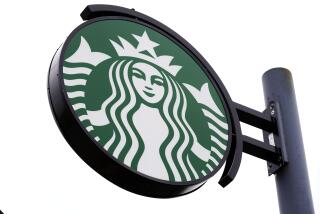Pepsi to Make Plastic Bottles in Belarus : Trade: The venture with Eastman Kodak is aimed at easing a shortage of glass containers in the former Soviet Union.
- Share via
MOSCOW — Pepsico Inc. and Eastman Kodak Co. signed an agreement Thursday to produce plastic soft-drink bottles in the former Soviet Union, introducing the disposable containers to meet a so-far unquenchable demand for Pepsi here.
Described by Pepsico and Eastman Kodak officials as a $100-million, five-year, innovative effort to expand sales despite the economic chaos here, the joint venture was one of the first major deals to cross the new national boundaries now separating the former Soviet republics.
“Companies in the United States and Western Europe should come into this market now,” said Donald M. Kendall, Pepsico’s retired chairman and a pioneer in Soviet-American trade. “Those (who) want to wait for the convertible ruble or for legal clarity on everything will be left behind.”
Christopher A. Sinclair, president of Pepsi-Cola International, a division of Pepsico, said the deal should substantially expand Pepsi sales in Russia.
“Although the demand is huge for Pepsi, we have two long-standing problems meeting it--a shortage of hard currency to buy syrup, which is how we make our money, and a shortage of bottles in which to sell it,” said Richard M. Norton, a Pepsi International vice president. “This deal tries to address both problems.”
The deal involves the initial, annual production of 30 million two-liter bottles in the Khimvolokno chemical plant at Mogilev, Belarus, a sprawling complex with 25,000 workers that is one of Europe’s largest. Production is expected to increase to 500 million bottles a year.
Earnest W. Deavenport, president of Eastman Chemical Co., a division of Eastman Kodak, said his firm had decided to participate in the venture, despite the economic chaos, in the belief it was “an important first step toward other efforts to improve food packaging.”
All carbonated beverages in the former Soviet states are now bottled in glass containers.
The joint venture, dubbed Belpak, will be equally owned by Pepsi, Eastman, Khimvolokno and a sister company that manufactures synthetic textiles. Officials of the U.S. companies declined to disclose the dollar value of their investments in the project.
Although disdained by many Western environmentalists, plastic packaging such as Eastman’s polyethylene terephthalate will be a major advance when extended to other food products because of the importance of getting agricultural produce to consumers with less waste.
More to Read
Inside the business of entertainment
The Wide Shot brings you news, analysis and insights on everything from streaming wars to production — and what it all means for the future.
You may occasionally receive promotional content from the Los Angeles Times.










